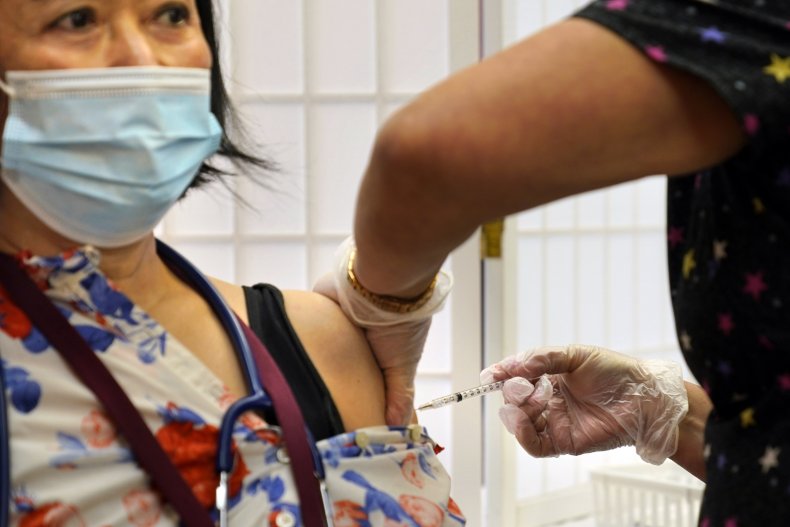Three states have announced plans to allow all adults to receive COVID-19 booster shots.
Maine, Vermont, and Kansas have announced that all adults, regardless of whether certain criteria established by the Centers for Disease Control and Prevention (CDC) are met, will be able to receive a COVID-19 booster shot. These decisions come two days before the CDC will debate whether to formally encourage boosters for adults not meeting their current guidelines.
The eligibility will be effective immediately in all three states. At the moment, the CDC recommends booster shots for those 65 and older, as well as those 50 to 64 with underlying medical conditions.
Vermont’s decision was made due to positive effects against transmission in current booster recipients. Governor Phil Scott said in a news statement that cases among residents ages 65 and older have dropped about 2.5%.
“This is evidence that boosters are working to both keep cases lower in the at-risk age groups, and by further protecting the most at risk, they reduce hospitalizations,” Scott said.
On the other hand, Maine’s new recommendation was reached by the Maine Center for Disease Control and Prevention after experts determined that all state residents either live or work in high-risk settings. These settings would make transmission and infection more likely.
“We want to simplify the federal government’s complicated eligibility guidelines and make getting a booster shot as straightforward and easy as possible,” said Maine Governor Janet Mills in a statement.
As for Kansas, their reasoning for the expansion was simple. The winter seasons are fast approaching and the state wants to prepare its citizens.
“As we move into the winter months, Kansans will increasingly be indoors, putting themselves at greater risk of contracting the virus,” said Kansas health department’s top administrator Dr. Lee Norman.
For more reporting from the Associated Press, see below.
Photo by Justin Sullivan/Getty Images
Scott said Wednesday that the state will remove the longer list of criteria for boosters on its registration website, simplify the registration process and take walk-ins at state-run vaccination clinics as part of the universal booster program.
“At this point, we need to shift to getting everyone boosted to help reduce the disruption of higher cases and minimize transmission to at-risk Vermonters, particularly through the winter months,” Scott said.
People who received the Johnson & Johnson vaccine are eligible two months after their first dose, and those who received a Pfizer or Moderna vaccine are eligible six months after their second dose.
California, Colorado, New Mexico, Arkansas and West Virginia have also expanded booster eligibility to all adults. New York City has also made the change.
Mills is a Democrat. The governor said one of the motivating factors for the change was that health care systems in the state are overburdened by a surge in COVID-19 cases.
The seven-day rolling average of daily new cases in Maine has risen over the past two weeks from about 467 new cases per day on Nov. 1 to about 564 new cases per day on Monday.
The CDC reported that as of Tuesday, about 1.57 million Kansans had received at least two doses of vaccines made by Pfizer or Moderna or one made by Johnson & Johnson. Nearly 263,000 adults or 16.7% have received a booster.
The state health department reports that for the seven days averaging Monday, the state had an average of 1,083 new confirmed and probable COVID-19 cases a day.

AP Photo/Seth Wenig



















